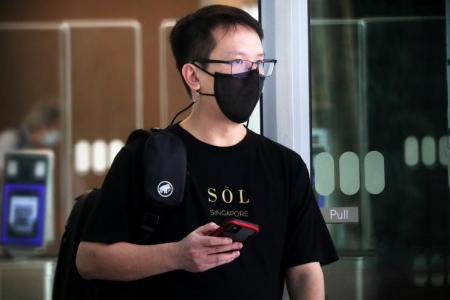NSman fined for living in Thailand for years without exit permit
After he got married, a Singaporean man moved to Thailand and stayed there for close to six years without a valid exit permit to excuse him from duties as an operationally ready national serviceman (NSman).
Joseph Tan Li-Gen, 36, was arrested at the airport when he returned last December.
Yesterday, he was fined $4,500 over one charge of remaining outside Singapore for five years and 10 months without a valid permit.
Tan left the country on March 1, 2015, without a valid exit permit issued by the Central Manpower Base, said Deputy Public Prosecutor Foong Ke Hui.
He had completed his full-time national service on June 24, 2005, and was assigned to an armoured infantry unit for his operationally ready NS training cycle.
It was not stated if Tan was ever recalled for reservist duty, but DPP Foong said he was not exempted from service and was assigned to another unit in 2016.
In his mitigation plea, Tan, who was not represented by a lawyer, said he was financially strapped. He took on two jobs to pay for his mother-in-law's cancer treatment and looked after his two children.
When asked by the judge why he had left Singapore for so long, he said he went to Thailand after he got married and had a child. His mother-in-law was later diagnosed with cancer there. He said he ran his own restaurant in Thailand and had not served any reservist duties to date.
In his sentencing, District Judge Marvin Bay said: "I note you have completed your full-time active national service, but you should be mindful that your duty to the country continues as an NSman.
"It is important that the NS liability is taken seriously."
If unable to pay the fine, Tan will serve a default sentence of five weeks. For remaining outside of Singapore without a valid exit permit, he could have been jailed up to three years and fined up to $10,000. - THE STRAITS TIMES
Get The New Paper on your phone with the free TNP app. Download from the Apple App Store or Google Play Store now


